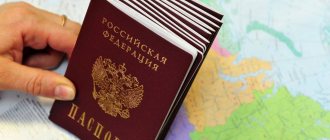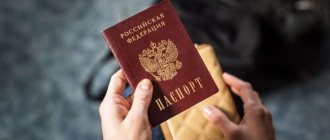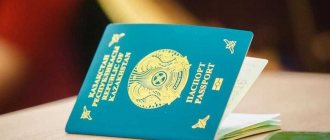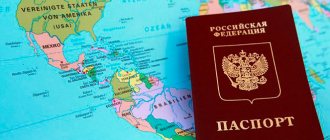- Possibilities
- Receipt
- Features in the Russian Federation
Many people do not see the difference in the concepts of second and dual citizenship and use them as synonyms. But these terms should not be confused, since they are different in content, and also have significant legal differences and subtleties. What is the difference between dual and second citizenship - we will understand further.
Dual or multiple citizenship requires the conclusion of an interstate agreement, which is regulated by legislative acts. In this option, the state is aware of the existence of a second passport, and it fully accepts the rights and obligations of the citizen regarding the second party.
Second citizenship also means having multiple passports. But in this option, there is no agreement, citizenship is acquired without the knowledge of the state, and the rights and obligations of citizens regarding another country are not officially recognized.
Dual and second citizenship differ in that in the first option, due to the existence of an agreement, no legal conflict arises, and the issues of compulsory service in the armed forces and payment of taxes are completely regulated: a person performs civil duties only in the country where he is located. Persons with a second citizenship are required to fulfill civil obligations in both states.
How is dual citizenship different from second citizenship?
Dual citizenship implies that the corresponding agreements between countries are enshrined in certain legislative acts. Thus, the state knows that a person has a second passport, and also recognizes his rights and obligations in relation to another country.
Dual citizenship in Russia is possible if appropriate intergovernmental agreements are signed between states. And at the moment in our country it can only happen with Tajikistan.
Second citizenship also requires having two passports from different countries.
However, in this case, there is no agreement on the recognition of dual citizenship between states, and you are primarily obliged to comply with the obligations imposed on a citizen in each of the countries where you have citizenship. Moreover, the authorities may not know at all about the presence of a second passport, unless otherwise provided by law. Currently, in Russia it is not prohibited to have a second citizenship, but after receiving it you need to report it to government authorities.
What are the benefits of second citizenship?
Many Russians see the main benefit of having a passport from a second state in the fact that they get the opportunity to freely cross the borders of both countries - their “native” and the acquired one. And if we are talking, for example, about citizenship of one of the European countries, then to the above-mentioned privileges, naturally, is added the right of free movement throughout the Schengen area - without the need for separate registration of tourist visas.
The second important point is to obtain additional guarantees of stability and security.
“If the first benefit is, for the most part, attractive to freelancers, bloggers, artists and all those who seek to travel more, then the second, as a rule, is of particular importance for citizens of unstable states,” explains Yuri Kapshtyk. “If, for example, a serious economic crisis or political upheaval occurs in a country, the holder of two passports can quickly and easily leave the territory that has become dangerous or uncomfortable for living.”
Access to quality medical services and an overall improvement in living standards also attract those wishing to acquire dual citizenship. It is clear that, for example, during the COVID-19 pandemic, it was not easy for the whole world, but still countries with well-developed economies and well-established healthcare systems were able to provide the best care for their citizens. For the same reasons, the process of obtaining a second passport is often initiated by large families - after all, this is an excellent way to invest in the future of their children, providing them with such opportunities as a quality education with a world-class diploma, personal development in a prosperous society, and much more.
Rights and obligations of dual citizenship holder
As a rule, a holder of dual citizenship - or, as it is also called, a bipatriate - exercises his rights only where he lives. He will not be able to receive social benefits and a pension in two states at once. Thus, a holder of dual citizenship of Russia and Tajikistan can only enjoy benefits in the country of his permanent residence.
On the other hand, there are rights that can be exercised without problems at once in both Russia and Tajikistan. Dual citizenship makes it possible to freely, without additional documents and permits, move between both countries, get hired and do business, and seek support from the consulate of either of the two states when you find yourself in a third country.
The responsibilities of a bipatriate citizen are distributed according to a similar principle. In accordance with it, taxes are paid in the country of permanent residence, and military service upon conscription takes place there. If a person later moves, he will pay taxes in his second homeland, but he will not serve in the army, since he has already fulfilled his military duty where he lived before.
Dual citizenship agreements often allow the holder of passports from both countries to vote in presidential and parliamentary elections. However, there are also restrictions: such a person will not be allowed to hold public elective positions. He should not be a judge, prosecutor or policeman.
Let us note once again that the above applies to citizens of countries between which there is an agreement on dual citizenship - in this case, to holders of passports of Russia and Tajikistan, since such an international agreement is currently in force only with this country.
Now let's figure out what opportunities second citizenship opens up for its owner - that is, citizenship of a country with which an agreement on dual citizenship has not been signed.
Additional Information
Is it possible to have two passports in the absence of an international treaty?
Yes, but at the same time, our country will consider you only its citizen, without recognizing the citizenship of another state.
In what cases is multiple citizenship not allowed?
Some Russians are prohibited from having two citizenships:
- civil servants (exception - this fact is provided for by an international treaty);
- founders of the media, owners of more than 20% of the shares of such an organization, editorial staff and other broadcasting organizations;
- voting members of the Election Commission;
- members of the Public Chamber of the Russian Federation.
How can a foreigner obtain dual citizenship with the Russian Federation?
Only citizens of Tajikistan have the right to become binationals in accordance with the agreement concluded between the Republic and our country.
In which countries do Russians most often obtain second citizenship?
The EU countries (mainly Cyprus) are the most popular, and the USA is less popular.
Where can I get a certificate of his absence?
These and other issues related to citizenship are dealt with by the Federal Migration Service. A corresponding request must be sent to the department at your place of residence.
Help for civil servants
To confirm the absence of a second citizenship, you must also contact the FMS. In addition, you can make a corresponding request through the website of the Ministry of Internal Affairs of the Russian Federation or the State Services portal.
Certificate of absence of foreigners in the organization
This is necessary, first of all, for media organizations or other broadcasting organizations. It is impossible to obtain a certificate of absence of foreigners in fact. It is enough to present a certificate of absence of a foreign passport from domestic citizens.
Responsibilities of holders of second citizenship
Russia and a large number of other jurisdictions have signed agreements to eliminate double taxation, so you can pay taxes in the country where you spent the most time and were recognized as a tax resident.
In terms of other duties, the state considers the holder of a second passport exclusively its subject, so you can serve in the army twice if your second homeland also has universal military service. Second citizenship often serves as a basis for refusal when you apply for a government position.
The country issuing the second passport does not inform the rest of the world community about this, although it may provide information within the framework of existing agreements between countries. Some countries guarantee complete confidentiality in this matter. Moreover, everywhere they treat multiple citizenship differently. For example, in Belarus, it is prohibited. Some states treat their citizens with passports of other countries more loyally. In Russia, second citizenship is allowed. By law, you must personally notify the Russian authorities about this. Of course, many people hope for confidentiality and, having received a second passport, do nothing. But if the deception is revealed, the violator will face a large fine, and in some cases even criminal prosecution.
Where is second citizenship prohibited?
In many countries around the world, obtaining a second citizenship is prohibited by law. Such countries include Germany, Denmark, Norway, Japan, China, India, South Korea, Kazakhstan, Ukraine, etc. In the USA, a formal renunciation of previous citizenship is required.
Children of migrants in Germany have the right to dual citizenship. They can retain citizenship of Germany and the country of their parents' origin even after reaching the age of 23. Previously, children of immigrants born in Germany had to choose between their German and their parents' citizenships when they turned 23.
How do you get second citizenship?
The standard process of obtaining citizenship of another country takes many years. First, you need to obtain a residence permit, which gives you the right to live in another state for a long time. After 5-7 years you will be able to apply for a permanent residence permit. And after a few years, having passed a series of tests on your knowledge of the language and the peculiarities of local life, you will finally receive a second passport.
If you don’t agree to wait that long, and things at home don’t allow you to spend most of the year in your second home, don’t despair. Several countries are ready to significantly speed up the process of obtaining citizenship for foreign investors. In this progressive way, governments attract additional investment into their country's economy.
Imperial & Legal specialists are ready to assist domestic investors in obtaining citizenship in several countries at once. The most expensive and, perhaps, the most prestigious option will be the UK.
The easiest and fastest second passport through naturalization
There are several states that most likely will not make you a citizen, no matter how long you live there. One of these states is Monaco. In other countries, you can obtain a temporary residence permit to live legally, then become a permanent resident and eventually apply for citizenship. Here are some of the most interesting options for Russians, Ukrainians and Belarusians wishing to obtain simple citizenship and a second passport through naturalization.
Citizenship and second passport of Uruguay
Uruguay, located next to Argentina, is one of the most developed countries in South America, characterized by a high standard of living. Obtaining a residence permit in Uruguay is quite easy. An application for citizenship can be submitted after three years if the applicant is married to a citizen of the jurisdiction (a single applicant will be able to apply after five years).
However, you must actually reside in Uruguay for the first year or so after applying for residency to show that you are serious about becoming a citizen.
Brazilian citizenship and second passport
Brazil offers one of the best passports in South America, but the country is full of picturesque landscapes and attractions, and the lifestyle of its wealthy residents is the envy of many. You can become a Brazilian citizen in four years if you want to start a business there or invest approximately US$75,000 in the jurisdiction's economy.
Brazil is also unique in that it does not hand over its citizens to foreign police authorities upon request if they are on Brazilian soil. Even countries that offer foreigners legal citizenship for money cannot boast of such a bonus.
Citizenship and second passport of Paraguay
This emerging South American jurisdiction offers a permanent residence by investment program. This program allows you to obtain permanent residence for only $5,000 by opening and replenishing a bank account.
You can also start a small business and pay yourself a taxable salary, or invest a few thousand dollars in Paraguayan stocks. Holders of permanent residence in Paraguay can expect to receive citizenship of this country after three years.
Citizenship and second passport of Panama
The Panama Friendly Nation Visa program allows citizens of more than forty countries to obtain a Panamanian residence permit by making a bank deposit of $5,000 (Golden Visa) and creating another “economic connection”, for example, through ownership of a Panamanian company. If you begin living legally in Panama as a resident, you can become a Panamanian citizen after just five years of naturalization.
Citizenship and second passport of Canada
Believe it or not, Canada offers fast naturalization. Unfortunately, the North American country recently suspended its immigrant investor program. This means that you will likely have to get a job with a Canadian company in order to move to Canada legally and start the naturalization process.
However, once you have legal residency (whether through employment or otherwise), you will be able to apply for Canadian citizenship after just four years of naturalization. It should be noted that you are required to spend all but a few months of this time in Canada. Compliance with this rule is strictly controlled by immigration officials.
Second citizenship in England
In the country of Foggy Albion there are no special programs providing for citizenship by investment, but if you are ready to invest your money in the real sector of the British economy, you and your family will receive special treatment. The minimum investment size starts from £2 million, and the maximum from £10 million. Those who have invested the maximum can obtain permanent residence after 2 years, and after another 3 have the right to apply for naturalization.
You will need to live in the country all these years. The UK is strict towards its future citizens, but the game is worth the candle, since British markets provide an excellent opportunity to make money, laws allow you to optimize taxes, and life in the British Isles is as comfortable and safe as possible. The holder of a United Kingdom passport is a welcome guest in many countries around the world.
Countries where you can have a second passport
A foreigner with special merits to Georgia can obtain a second citizenship in Georgia. In addition, second citizenship can be granted in Georgia if it is in the interests of the country.
In Germany, dual citizenship is allowed in special and exceptional cases. For example, there is no need to renounce existing citizenship if:
- The state legally prohibits renunciation of its citizenship.
- The state refused to renounce citizenship.
- Renunciation of citizenship carries a threat or trouble for a foreigner.
- The foreigner has a special travel document in accordance with Article 28 of the Convention of 28 July 1951 relating to the Status of Refugees.
To obtain German citizenship, a foreigner must have legally resided in Germany for 8 years, have a good knowledge of the German language and renounce his or her first citizenship.
A child receives German citizenship only if one of his parents is a German citizen. If both parents are foreigners, the child will not receive German citizenship, even if he is born in Germany.
A Lithuanian citizen can have two passports if he:
- Has the right to citizenship of another state by birthright, as well as to Lithuanian citizenship.
- Left Lithuania before March 11, 1990.
- A relative of a person who falls under the criteria of the first and second points of this list.
- Received second citizenship by marriage.
- He was adopted at the age of 18 by citizens of Lithuania and as a result acquired Lithuanian citizenship.
- He had Lithuanian citizenship, but at the age of 18 he was adopted by citizens of another state, on the basis of which he received a second citizenship.
- Refugee.
- Retained or restored Lithuanian citizenship for outstanding services to the state.
To obtain Japanese citizenship, you must renounce your previous citizenship. Previously, Norway put forward the same conditions, but from January 1, 2021, it became optional to renounce other citizenship.
There are cases in which it is impossible to renounce your citizenship. For example, we can take Iran, if its citizens have not fulfilled the following conditions, they cannot leave the citizenship of this country:
- Reaching the age of 25 years.
- The Council of Ministers personally allowed them to renounce Iranian citizenship.
- They committed themselves to transfer their rights to land property within one year from the date of renunciation of Iranian citizenship.
- They successfully completed their military service.
In some countries, a foreigner cannot obtain a second citizenship. For example, in Germany, Japan, Belarus and Ukraine it is not prohibited to have two passports, but in order to obtain Japanese, Belarusian, Ukrainian and German passports, you must renounce your first citizenship.
Russians have the right to obtain a second citizenship. There are no legal restrictions in this regard.
European citizenship by investment
In the rest of Europe, several countries have government programs offering citizenship in exchange for investment in the economy.
We would like to draw your attention to such jurisdictions as Cyprus, Malta and Montenegro.
Cyprus
Allows the investor to become the owner of an EU passport after 7 months, which, in turn, gives the right to live, study and work in any corner of the European Union. The country has long been considered a tax haven. The applicant does not need to live in Cyprus, but €500,000 of the €2,150,000 required for investment cannot be returned, since it will be used to purchase permanent housing on the island.
Malta
A picturesque archipelago in the Mediterranean Sea and another famous tax haven in Europe. The process of obtaining a passport takes from 12 to 14 months. The Republic of Malta is part of the European Union, so citizenship here provides the same opportunities as in any other European country on the continent. You don’t need to live on the islands to get a passport, but you will still have to visit the country several times. The standard investment option for one applicant will be €1,150,000. More than half of this amount will be spent on a free contribution to the state, the rest - on the purchase of real estate and shares of local companies. The invested funds can be returned after 5 years.
Montenegro
Part of the former Yugoslavia and candidate for EU membership. Already, the passport of this country gives the holder ample opportunities for business and travel. Economic citizenship can be obtained after 6 months by investing €350,000 or more in the local economy, of which €100,000 will go irrevocably to the state fund.
Rich people from Russia ran to buy second passports. Montenegro surrendered everyone
Nothing personal just business. This is how many businessmen from Russia could answer the question of why they need, for example, a Montenegrin passport. No, they are, of course, not emigrants - perhaps “internal”, “against the regime”. And they're not even traitors. They simply don’t want to pay taxes in their home country. After all, for them she is just a feeding ground...
Montenegro was taken as an example not by chance. The RBC portal has just published material with a rather interesting legal finding. And it talks about a document published by the authorities of this country, which provides information about 166 positive decisions regarding the granting of Montenegrin citizenship to foreigners. This list also contains quite well-known names of Russian citizens. Both businessmen and government officials.
Montenegro - a refuge for namesakes
However, it was in this regard that my colleagues hedged their bets quite cleverly. But more on this a little further.
The fact is that Montenegro is one of the countries that sell their passports to foreigners. Officially, this is called, of course, much more noble - citizenship by investment. But in essence, this is a disguised sale: a “golden passport” can be purchased by investing in real estate from 250 thousand euros in the north of the country and from 450 thousand euros in the south, along the coastline. And you also need to make a charitable contribution of 100 thousand euros.
And it turned out that the number of applications from Russia for such a passport “counts in the dozens.” The published list gives their names, places of birth and previous citizenship. And what a coincidence the RBC journalists discovered! – among these people there are many namesakes of famous people in Russia. Even the places of birth are the same!
For example, there is the namesake of the former head of Rostourism Oleg Safronov. The place of birth - Tselinograd, now Nur-Sultan - also coincides. The place of birth also coincides with the general director of Avito, Vladimir Pravdivy , and his namesake. There is a namesake of Alexander Shiryaev, a member of the board of directors of Pipe Metallurgical Lada-Credit. Sergei Balagansky was also born, like the “original,” in the city of Frunze, now Bishkek.
They have a right?
The idea with namesakes is, we repeat, witty. Everyone understands everything when no one claims anything. But, essentially, there is nothing to complain about here. Russia is a free country. Including for travel. And these namesakes are not the namesakes of civil servants, for whom the position imposes certain restrictions in this regard, but normal businessmen.
Even Oleg Safronov, who actually headed the Federal Agency for Tourism from 2014 to 2021, had previously worked in business since 1991: deputy director of a branch of the Unikombank UAKB, president and minority shareholder of the RTS stock exchange, financial director of the Center for High-Technology OJSC, etc.
That is, these are private individuals, and a request for third-party citizenship on their part is no more reprehensible than, say, the French artist Gerard Depardieu obtaining Russian citizenship.
And the Constitution of Russia does not prohibit a citizen of a country from obtaining a passport of another state. If, however, he is not a civil servant, not a military serviceman and does not have access to state secrets. According to Article 6 of the Federal Law “On Citizenship of the Russian Federation” of May 31, 2002, second citizenship does not entail the termination of Russian citizenship.
So the namesakes of famous citizens do not commit anything illegal. So they have the right. But what does this mean in terms of civic ethics?
Why do they need this? And ride
The described case is not the only one. Some time ago there was information that Oleg Deripaska’s namesake had received Cypriot citizenship. On this island they also had fun selling citizenship for money. More than 3 thousand foreigners received it, of which, according to press reports, more than a third were from Russia.
The media cited such names as co-owner of Sheremetyevo Airport Alexander Ponomarenko, former senator Leonid Lebedev, former owner of Uralkali Dmitry Rybolovlev and other... namesakes.
Then, however, a scandal broke out - it seems that the President of Cyprus himself got his hands on these operations. But this does not change the essence: second citizenship in exchange for investment can be obtained in many countries of the world.
The cheapest places are in Dominica ($100 thousand), Saint Lucia (100,000), Antigua and Barbuda (100,000), Saint Kitts and Nevis (150,000), and Grenada (150,000). True, the indicated amounts do not include duties and taxes, so in reality you will have to pay one and a half to two times more.
You can even quickly and relatively inexpensively become a citizen of the Pacific island nation of Vanuatu. Only 130 thousand dollars and two months of waiting - and you are not only an enviable exotic young lady, but you can also freely travel around Europe without any visas.
This, in fact, is what we are talking about primarily for those wishing to take third-party citizenship - about free access to different states, where access with a Russian passport is difficult or requires lengthy approval, and stay is limited in duration.
For example, Malta. Everything is clear: EU member of the Schengen area. I gave Malta 650 thousand euros and travel freely throughout Europe. Being a Maltese resident.
For a similar purpose, by the way, many in Moldova accept Romanian citizenship, in no way considering this a loss of their Moldovan identification or even a betrayal of Moldovan patriotism. Yes, even in Transnistria, the author of these lines had the opportunity to communicate with a person who had four passports - Russia, Moldova, Romania and Transnistria. Although it is in Transnistria that Romanian citizenship is by no means encouraged. And this is by no means a businessman.
And businessmen with cross-border activities will be even more ready to buy passports from Caribbean mini-states, since they provide practically free visa-free access to most countries of the world. And they even allow you to open an American business visa.
For over 500 thousand euros of investment in government bonds, you can get permanent residence in Bulgaria. But Cyprus is just much more expensive - for its passport you have to pay more than 2 million euros as an investment, and even buy housing for 500 thousand.
Why, even in the USA you can get an EB5 visa by investing from 900 thousand dollars. True, the Americans will get on their nerves enough in this case too...
This is also an opportunity to manipulate taxes.
Everything is simple here: different states establish different tax regimes. For example, if you become a resident of Dominica, the tax burden is reduced by three times. In this country there is no tax on dividends; rates on other income are almost three times lower than even the Russian 13%.
However, to be considered a tax resident, you need to live in this country for at least six months. Well, the Caribbean is not Greenland. And if you are a former businessman and now live on dividends, then the situation completely turns into an eternal resort. One of my acquaintances lives in Inkerman on a simple pension - and he doesn’t enjoy life enough. True, he is a hedonist, but this does not change the principle.
What is changing is that such tax havens are slowly but persistently being covered up by law and agreements with the “heavens.” For example, according to amendments to the law on the avoidance of double taxation, taxes on income in the form of dividends in Russia will also be paid in Malta in Russia. The same fate awaits Cyprus and Luxembourg, and in response to the rebellious Netherlands in this regard, Moscow presented serious claims.
Another reason for our businessmen to obtain foreign citizenship is the problem of legalization of income. The declaration indicates one thing, and the accounts indicate another. Two or three orders of magnitude more different. Where did you get it? And to Vanuatu! But in practice it’s not even like that.
In practice, in Russia the accounts are modest, causing even tax inspectors to want to share. And the yacht sits quietly in St. Kitts and Nevis, and money for its maintenance is dripping from Vanuatu.
No, this is, of course, a simplified picture; experts will point this out. But in principle it is clear.
Here, however, the pressure also begins. For example, previously it was possible to invest freely in the UK. Double benefit - as you know, there is no issue from the Thames. And crowds of Russian “investors” who had moved away from fright roamed London. But now in England there is a law on criminal finance, according to which the “investor” must explain the legality of the origin of assets worth more than 70 thousand dollars. There is no explanation - there will be confiscation. In today's Britain, which is rocked by real economic storms with shortages even for toilet paper, this option is virtually inevitable.
So what?
There are bigamists, there are bigamists - it’s easy to circumvent the law here, so this is mainly a matter of personal conscience and practical calculation. The same Depardieu, we recall, was inflamed with love for Russia, unable to bear the enormous tax pressure of his French state on excess income.
Similar conflicts arise in other “socialist” states, primarily in Europe, where a progressive taxation scale operates. Indeed, it is psychologically difficult to come to terms with the fact that 75% of your family’s money is taken away from you in order to give it to migrants who have arrived in large numbers. Especially if they robbed you yesterday in transport, and the day before yesterday they raped your daughter.
In all honesty, we need one thing from these people: that they fully and accurately pay taxes on all income received from business in Russia. Let him do whatever he wants in Vanuatu with the local Polynesians. But from what you earned in Russia, be kind enough to contribute that same 13%. Moreover, in the future there is still no escape: tax transparency and an increasingly complete exchange of information on this matter is a modern trend in which all states are interested. Even those at odds with each other.
So the Netherlands is not going anywhere.
Economic citizenship in the Caribbean
Our story will be incomplete if we do not write about the most profitable offer at the moment. The tiny Caribbean states that are members of the British Commonwealth are very interested in the influx of foreign investment into the economy, so they are ready to issue passports to you and your family in exchange for investments that are incomparably more modest than in Europe. In advertising brochures they write about investments from $100,000 and, with some reservations, this statement is not far from the truth.
A Caribbean passport does not provide its holder with the same travel opportunities as EU citizenship, although it is practically no different from the point of view of doing business and optimizing taxes. The applicant is not subject to a lot of strict requirements, as in Europe, and the registration of citizenship itself in most jurisdictions can be done remotely.
Imperial & Legal is an authorized agent for countries in the Caribbean such as: Antigua and Barbuda, St. Kitts and Nevis, Dominica, St. Lucia and Grenada.
With which countries is second citizenship possible for a Russian?
There are a number of countries that allow two or more citizenships, including states with dual citizenship with Russia. Among them are Latvia, Israel, Turkey, Brazil, Spain, Ireland and others.
At the same time, some states prohibit dual citizenship. These are countries such as Germany, Belarus, South Korea.
In a number of countries, second citizenship can be acquired for money. For example, Malta will happily provide its citizenship for $1.5 million. But to officially obtain a Cyprus civil passport you will have to fork out as much as 7 million euros. However, as they jokingly say, “if a problem can be solved for money, then it is no longer a problem, but an expense.”
Legal responsibility for second citizenship
A person who has another citizenship must fully and impeccably comply with all laws, rules and requirements of the second state. For non-compliance, he may receive a ban on permanent residence, incur administrative (reprimand, fine, forced labor) and criminal liability.
Many prohibitions (for example, participation in terrorist and extremist movements) also apply outside the country.
The federal law emphasizes that having another passport does not deprive a person of Russian citizenship and does not remove his duties and rights.
One of the most unpleasant is the double taxation system. A person is obliged both there and there to make social contributions and pay income tax. And it doesn’t matter whether he currently lives in Malta or hasn’t been to Moscow for a long time, deductions must be monthly and regular.
However, you can use the social guarantees of both countries and receive a pension in both the Russian Federation and the USA. Provided that all necessary conditions have been met (experience, deductions).
For citizenship with Tajikistan, different principles apply.











